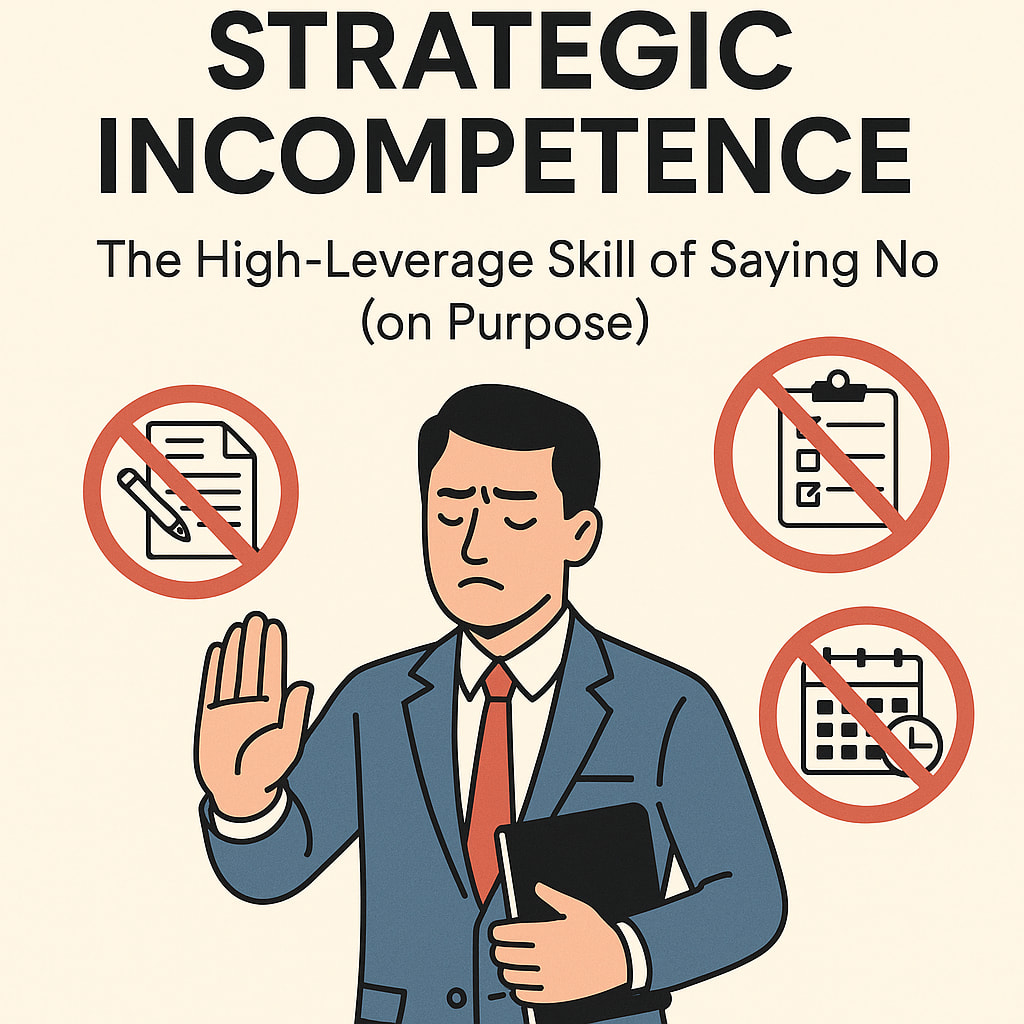If you’re a senior engineer or line manager looking to get promoted to Staff, Principal, or Director, you need to be able to take on more than the average person on your team. But how do you do that without burning yourself out or working nights and weekends? How do you create more capacity?
You need to get sharper about where your time goes.
That means making hard calls about what not to do or where to not give it your 100%. And that’s where the concept of strategic incompetence comes in.
Strategic incompetence is the intentional decision to give less than 100% at tasks that don’t actually require your best. Not because you don’t care, but because you care about the right things.
It’s a counterintuitive but powerful skill:
You deprioritize perfection in areas where “good enough” is enough.
You decline coordination roles that can be owned by others.
You decide some meetings can go on without you.
This isn’t an excuse to sling slop. It’s clarity. It’s capacity creation through subtraction. This isn’t that different from when a fielder in cricket slows their chase of a ball knowing exactly how many runs between the wicket the batsmen are going to take. Similarly, sometimes Lionel Messi can be seen walking on the field (instead of running), but he is very strategic about when he needs to break into explosive runs and when to hang back.
Let’s be real, this is a skill you have to use carefully. Not all work is safe to neglect. Being strategically incompetent in the wrong areas can be career-limiting.
So how do you know what’s fair game?
Look for tasks where the downside of underperformance is low:
Low-leverage internal rituals (e.g., status docs no one reads)
Routine cross-functional updates
Light project coordination you can hand off
Meetings where you’re not the decision-maker
Avoid being “bad” at anything with real consequences:
Exec or customer-facing deliverables
Decisions involving risk, headcount, or dollars
Cultural moments (e.g., conflict resolution, performance feedback)
Architectural decisions that are here to stay
In short: play defense where it counts, and offense where it pays.
You might enjoy keeping the backlog pristine or crafting the perfect roadmap presentation. That’s fine, energy is a good signal. Lean into it.
But don’t confuse what energizes you with what maximizes value.
If organizing tasks makes you feel in control, do it. But ask yourself: is this the best use of an hour today, given everything else on my plate? Would my team or my customers even notice if I did this at 80% quality instead of 100%?
Being over-invested in the work you like doing can crowd out the work you need to be doing to level up.
People often say staff+ engineers and directors “don’t scale” if they’re too in the weeds. What that really means is: you’re not creating capacity.
Your job isn’t to hold everything together, it’s to make the system work without you.
That means:
Delegating work even if you could do it faster
Encouraging others to step up (while you provide some guidance)
Letting things be a little messy so you can focus on the big bets
Choosing speed and clarity over polish when appropriate
This is the real move: make yourself obsolete in lower-leverage areas so you can take on the work that only you can do.
Strategic incompetence is a skill and a mindset. It takes confidence, clarity, and a willingness to let go of “looking competent” in favor of actually having impact.
If you want that next title, stop asking what more you should do.
Start asking:
“What am I willing to not do, so I can take on what truly matters?”
That’s how you create capacity. That’s how you earn your next level.
.png)




